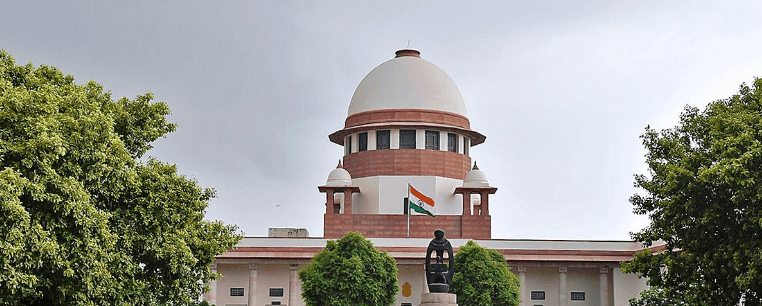
Provision of Special Marriage Act, 1954 has been challenged by some petitioners before the Apex Court in the Marriage equality case. The provision is which requires parties aspiring to marriage to give advance notice of 30 days, which will be published in the Registrar’s office inviting public objections.
This provision has been challenged as being violative of fundamental rights to privacy and decisional autonomy by petitioners desiring recognition to same-sex marriage. It has been put forward that the ‘notice and objections’ provision will expose the pairs who join into non-traditional marriages to perils and brutality from families and vigilante groups.
Chief Justice of India DY Chandrachud, Justices Sanjay Kishan Kaul, S Ravindra Bhat, Hima Kohli and PS Narasimha, a constitution bench constituted to hear the case, agreed with the worries brought up by the petitioners.
In a writ petition filed by Utkarsh Saxena and Ananya Kotia, Senior Advocate Dr. Abhishek Manu Singhvi, who appeared for the same, commented that under Hindu Marriage Act or other personal laws, couples who decide to tie knots are not required to submit advance notice to the public. However, Special Marriage Act, being a secular law, mandates the same . It was further expressed by him that “Which married couple in the heterosexual world has to announce first to the world that we intend to marry? Why should I? It’s my personal decisional autonomy. It’s the heart of my privacy to decide with whom I associate when, how, after how much time into matrimonial union- be it of the same sex or the opposite sex”.
Justice Ravindra Bhat at this point spoke that these provisions are “based on patriarchy”. “It was created at a time when women didn’t have agency”, Justice Bhat put in.
“This is an invitation to disaster and violence”, Singhvi declared.
“And the object was to protect! You’re virtually laying them open to invasion by society, by Collectors, District Magistrates, Superintendent of Police”, CJI DY Chandrachud commented.
For a lesbian couple Kajal and Bhawna, Senior Advocate Raju Ramachandran appeared. He also contested the justification behind these provisions of the Special Marriage Act. He indicated that these provisions are indeed a vestige of the British legislations aimed at deterring the “clandestine marriages” and was full of curiosities as to how can they be placed in a shielding legislation.
“If the effect of these provisions is to deter your right to get married at a time when you desire to, it can’t be regarded as procedural because the impact is on your substantive right to get married at the time you choose”, CJI Chandrachud commented. CJI also noted that the provisions may not meet the test of proportionality, even if they are regarded as a criterion to inspect if the couples are fulfilling the requirements of marriage, as there are other less restrictive means.
“This notice requirement amounts to requirement of giving a notice to exercise my fundamental rights. This 30 day notice is designed for parental bodies and other busy bodies to create roadblocks”, Ramachandran put forward.
“There is a very real likelihood that this will disproportionately affect situations in which one of the spouses either belong to a marginalized community. This has a disproportionate impact on the most vulnerable of society”, the opinion expressed by the honorable CJI.
“This would be equally true for heterosexual couples too”, Justice Hima Kohli further declared.
“Yes, it should be struck down for all. It’s a retrograde provision. And it’s obnoxious”, Ramachandran stated.
It is important to note that in 2021, the Allahabad High Court announced that these provisions of the Special Marriage Act are not obligatory as the mandate for advance notice infringes on the right to privacy.
Written by Sonakshi Misra, 2nd year (4th semester) B.A.LL.B. Hons. Student at Atal Bihari Vajpayee School of Legal Studies, Chhatrapati Shahu Ji Maharaj University, Kanpur.





0 Comments